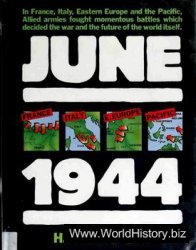Nowhere had the map of Europe been more drastically altered
by World War I than in eastern Europe. The new
states of Austria, Poland, Czechoslovakia, and Yugoslavia
adopted parliamentary systems, and the preexisting kingdoms
of Romania and Bulgaria gained new parliamentary
constitutions in 1920. Greece became a republic in 1924.
Hungary’s government was parliamentary in form but
controlled by its landed aristocrats. Thus at the beginning
of the 1920s, political democracy seemed well established.
Yet almost everywhere in eastern Europe, parliamentary
governments soon gave way to authoritarian regimes.
Several problems helped create this situation. Eastern
European states had little tradition of liberalism or parliamentary
politics and no substantial middle class to support
them. Then, too, these states were largely rural and
agrarian. Many of the peasants were largely illiterate, and
much of the land was still dominated by large landowners
who feared the growth of agrarian peasant parties with
their schemes for land redistribution. Ethnic conflicts
also threatened to tear these countries apart. Fearful of
land reform, Communist agrarian upheaval, and ethnic
conflict, powerful landowners, the churches, and even
some members of the small middle class looked to authoritarian
governments to maintain the old system.
Only Czechoslovakia, with its substantial middle class,
liberal tradition, and strong industrial base, maintained
its political democracy.
In Spain, democracy also failed to survive. Fearful of
the rising influence of left-wing elements in the government,
Spanish military forces led by General Francisco
Franco (1892–1995) launched a brutal and bloody civil
war that lasted three years. Foreign intervention complicated
the situation. Franco’s forces were aided by arms,
money, and men from Italy and Germany, while the government
was assisted by forty thousand foreign volunteers
and trucks, planes, tanks, and military advisers from the
Soviet Union. After Franco’s forces captured Madrid on
March 28, 1939, the Spanish Civil War finally came to an
end. General Franco soon established a dictatorship that
favored large landowners, businessmen, and the Catholic
clergy.
|
|
||||||||
|
Www.WorldHistory.Biz
Sundries
 Contact Contact
|
 
10-08-2015, 16:59
Authoritarian States in Europe
  |
|||||||
 |
 |
 |
 |
|||||
|
||||||||

 World History
World History





